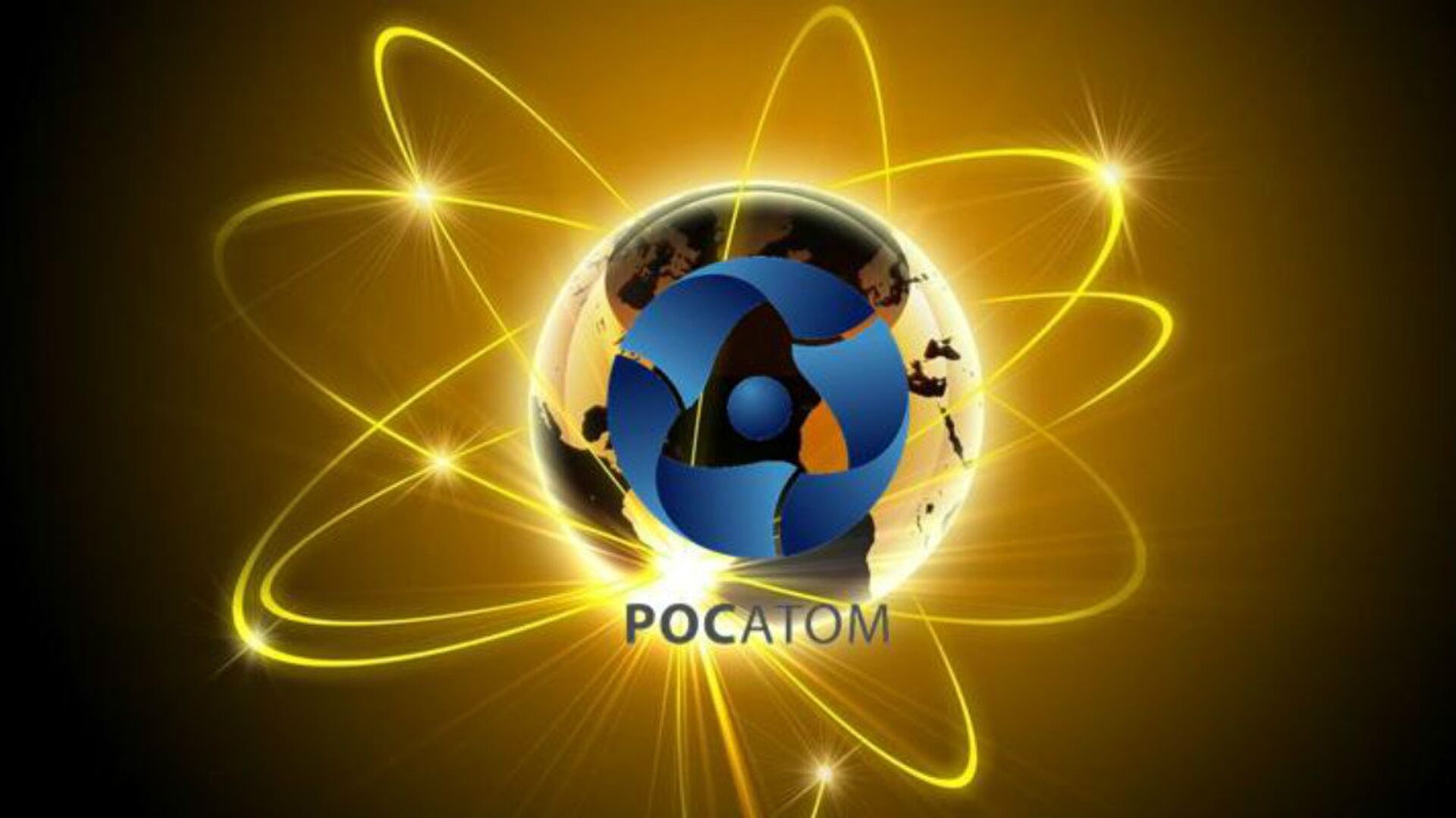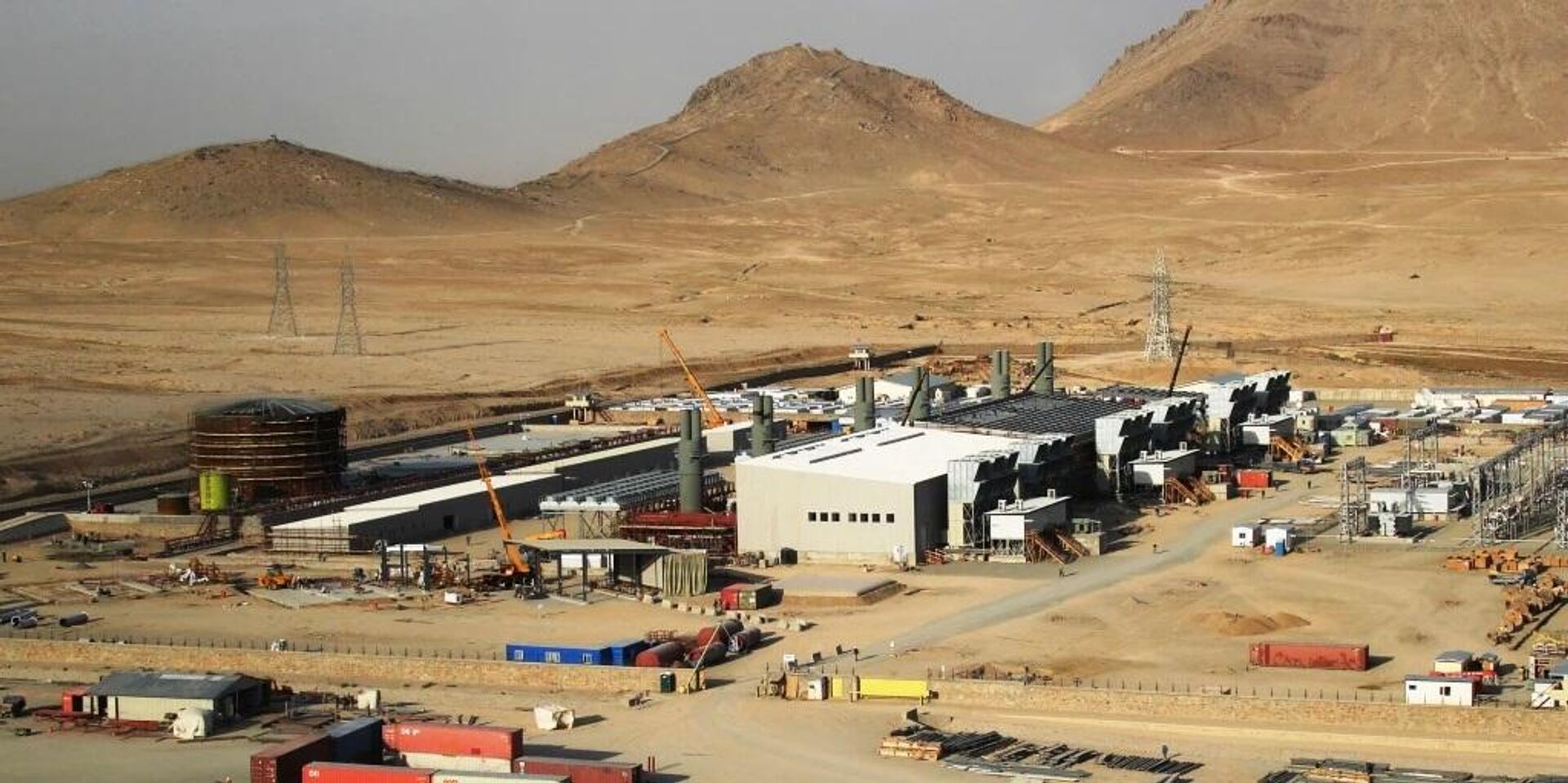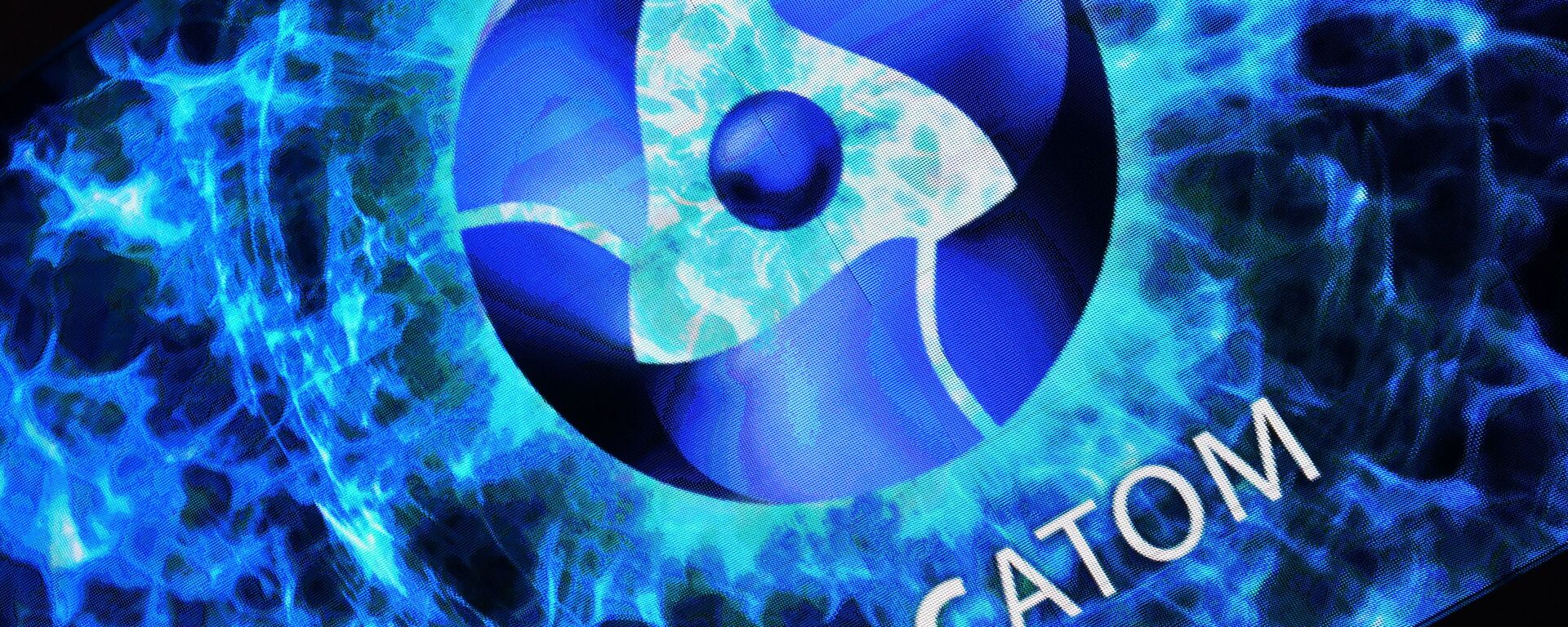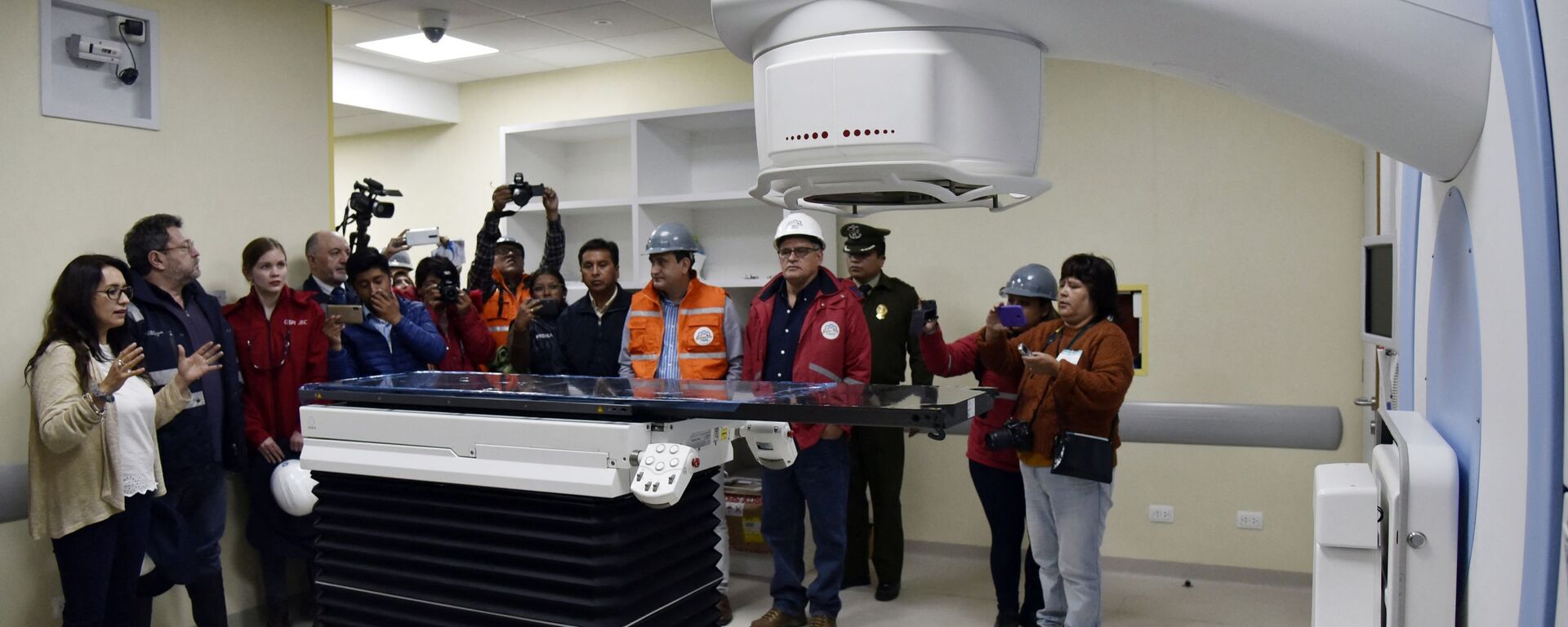https://sputnikglobe.com/20220720/welcome-to-nuclear-club-how-russias-rosatom-helps-egypt-fulfill-its-technological-dream-1097623991.html
Welcome to Nuclear Club: How Russia's Rosatom Helps Egypt Fulfill Its Technological Dream
Welcome to Nuclear Club: How Russia's Rosatom Helps Egypt Fulfill Its Technological Dream
Sputnik International
The construction of Egypt's first nuclear power plant was launched on July 20 in El Dabaa, Matrouh Governorate, by Russia's State Atomic Energy Corporation... 20.07.2022, Sputnik International
2022-07-20T15:01+0000
2022-07-20T15:01+0000
2023-07-31T16:57+0000
middle east
africa
egypt
rosatom
abdel fattah al-sisi
vladimir putin
world
sputnik explains
north africa
nuclear power plant
https://cdn1.img.sputnikglobe.com/img/102284/01/1022840157_15:0:1082:600_1920x0_80_0_0_a4d2c02ab895adcdc15d9b9276a9e265.jpg
"The construction of the Ed-Dabaa nuclear power plant is a great strategic achievement for our country," says Professor Layla Fikry, the former vice-chairman of the Egyptian Atomic Energy Authority (EAEA). "Over the recent decades the diversification of energy resources has been our major goal. And now we are taking the first step towards achieving this goal. This is a truly historic moment for Egypt."Rosatom received its permit from Egypt to start construction work on June 29, while on July 20 the first concrete slab foundation of what will be nuclear power unit No. 1 was poured in El Dabaa, about 300 km northwest of Cairo. Director General of Rosatom Alexei Likhachev and Minister of Electricity and Renewable Energy of Egypt Mohammed Shaker visited the construction site and inaugurated the works.The El Dabaa NPP is meant to be the cornerstone of Egypt's energy diversification policy, allowing Cairo not only to cover its own electricity needs, but also to provide energy to its neighbors. Egypt invested 355 billion Egyptian pounds ($18.77 billion) in energy projects between 2014 and 2021. The implementation of the El Dabaa project will cost Cairo about $25 billion. These expenditures are justified, according to Cairo. Currently, Egypt produces 30,000 megawatts (MW) of electricity; the new nuclear plant will provide additional 4,800 MW of clean energy.According to al-Wakeel, Egypt expects that the construction of two power units of the NPP will be completed this year. Once the nuclear power plant is put into operation, Cairo will consider the construction of another atomic station, the official emphasized."Of course, we are ready to further diversify our sources of electricity; we will construct a new [nuclear] station. Most likely, it will be located in Matrouh Governorate," al-Wakeel added.Magdy Abdallah, an expert and adviser to the Egyptian Atomic Energy Authority, elaborated that Cairo plans to build not only large nuclear power plants like the one in El Dabaa, but also small ones with one or two reactors.Rosatom's VVER-1200 ProjectThe construction of the El Dabaa NPP's first power unit marks Egypt's entry into the world nuclear club, Alexei Likhachev told journalists on Wednesday."Rosatom will build the most modern power units under the VVER-1200 project in the Arab Republic of Egypt," the Rosatom director general said. "We have already accumulated experience in the construction and operation of nuclear power plants with such reactors both in Russia and abroad. The construction of a nuclear power plant will allow Egypt to reach a new level of technology, industry and education. This will be the largest project of Russian-Egyptian cooperation since the construction of the Aswan Dam. Nuclear power has been a dream for the Egyptian people for more than half a century, and it is a great honor for Rosatom to make this dream come true."The VVER, or "the water-water energetic reactor," is a series of unique pressurized water reactors originally created by the Soviet Union, and further developed by Russia.VVER-1200 is a state-of-the-art Generation 3+ project that meets all post-Fukushima safety standards and regulations adopted by the IAEA, EUR, and WENRA, according to the corporation. The capacity of one NPP power unit is 1,200 MW. It was designed on the basis of VVER-1000 reactors, which were built in the 1990s and 2000s and successfully implemented in the Bushehr NPP (Iran), the Kudankulam NPP (India), and the Tianwan NPP (China). Belarus' first nuclear power plant also exploits the Russian VVER project. The 2,400 MW-capacity Belarusian NPP is equipped with two VVER-1200 reactors.Egyptian Dream is Taking ShapeThe construction of the El Dabaa Nuclear Power Plant is the initial part of Egypt's broader plan to accelerate the country's technological and economic development, according to Ayman Hamzah, a spokesman for the Egyptian Ministry of Energy.Peaceful nuclear energy is the key to economic progress, says Professor Layla Fikry: "For example, due to the construction of the nuclear power plant we will be able to provide electricity to two factories and ensure the development of local infrastructure." This benefits both the country's treasury and citizens, she highlighted.The Russo-Egyptian contracts concerning the implementation of the NPP project entered into force on December 11, 2017. Under the agreement, Rosatom will provide engineering, procurement and construction (EPC) services, nuclear fuel supply, operation support and maintenance, and spent nuclear fuel treatment as well as personnel training to its Egyptian partners.Western Sanctions Won't Stop El Dabaa NPP ProjectAccording to Egyptian officials, nothing can hinder the historic project, including the latest round of sweeping sanctions imposed on Russia by the US and its allies over Moscow's special military operation to demilitarize and de-Nazify Ukraine."Russia is a great power with extensive experience in the field of nuclear energy," says Mounir Mujaheed, former deputy head of the Egyptian Nuclear Power Plants Authority. "This project has been developed for a long time, it is extremely important both for us and for Rosatom. Therefore, I am convinced that neither the events around the Russian military operation, nor Western sanctions will prevent us from developing cooperation in the field of peaceful atomic energy."Still, Cairo had concerns that the project could be frozen, admitted Ali Abdel Naby, the former deputy head of the Department of Nuclear Power Plants. However, a solution to tackle possible risks was quickly found, according to him.
https://sputnikglobe.com/20210612/brest-fast-neutron-reactor-russia-offers-a-new-nuclear-paradigm-for-sustainable-development-1083133471.html
https://sputnikglobe.com/20210610/morales-legacy-bolivian-joint-nuclear-project-with-russias-rosatom-unique-for-latin-america-1083119832.html
https://sputnikglobe.com/20211227/russias-rosatom-says-interested-in-helping-build-waste-incinerators-in-africa-1091885457.html
africa
egypt
north africa
Sputnik International
feedback@sputniknews.com
+74956456601
MIA „Rossiya Segodnya“
2022
News
en_EN
Sputnik International
feedback@sputniknews.com
+74956456601
MIA „Rossiya Segodnya“
Sputnik International
feedback@sputniknews.com
+74956456601
MIA „Rossiya Segodnya“
middle east, egypt, rosatom, abdel fattah al-sisi, vladimir putin, sputnik explains, north africa, nuclear power plant
middle east, egypt, rosatom, abdel fattah al-sisi, vladimir putin, sputnik explains, north africa, nuclear power plant
Welcome to Nuclear Club: How Russia's Rosatom Helps Egypt Fulfill Its Technological Dream
15:01 GMT 20.07.2022 (Updated: 16:57 GMT 31.07.2023) The construction of Egypt's first nuclear power plant was launched on July 20 in El Dabaa, Matrouh Governorate, by Russia's State Atomic Energy Corporation Rosatom. NPP projects could make Egypt an international electrical hub.
"The construction of the Ed-Dabaa nuclear power plant is a great strategic achievement for our country," says Professor Layla Fikry, the former vice-chairman of the Egyptian Atomic Energy Authority (EAEA). "Over the recent decades the diversification of energy resources has been our major goal. And now we are taking the first step towards achieving this goal. This is a truly historic moment for Egypt."
Rosatom received its permit from
Egypt to start construction work on June 29, while on July 20 the first concrete slab foundation of what will be nuclear power unit No. 1 was poured in El Dabaa, about 300 km northwest of Cairo. Director General of Rosatom Alexei Likhachev and Minister of Electricity and Renewable Energy of Egypt Mohammed Shaker visited the construction site and inaugurated the works.
The El Dabaa NPP is meant to be the cornerstone of Egypt's energy diversification policy, allowing Cairo not only to cover its own electricity needs, but also to provide energy to its neighbors. Egypt invested 355 billion Egyptian pounds ($18.77 billion) in energy projects between 2014 and 2021. The implementation of the El Dabaa project will cost Cairo about $25 billion. These expenditures are justified, according to Cairo. Currently, Egypt produces 30,000 megawatts (MW) of electricity; the new nuclear plant will provide additional 4,800 MW of clean energy.
"We officially issued a permit for the construction of the first and second power units in the second half of 2022," says Dr. Amjad Al-Wakeel, head of the Egyptian Nuclear Power Plants Authority (NPPA). "Now we are preparing permits for the construction of the third and fourth power units, respectively."
According to al-Wakeel, Egypt expects that the construction of two power units of the NPP will be completed this year. Once the nuclear power plant is put into operation, Cairo will consider the construction of another atomic station, the official emphasized.
"Of course, we are ready to further diversify our sources of electricity; we will construct a new [nuclear] station. Most likely, it will be located in Matrouh Governorate," al-Wakeel added.
Magdy Abdallah, an expert and adviser to the Egyptian Atomic Energy Authority, elaborated that Cairo plans to build not only large nuclear power plants like the one in El Dabaa, but also small ones with one or two reactors.
"After all, we are seeking the maximum diversification of energy sources: small nuclear power plants, unlike large ones, can be located in areas remote from the center," Abdallah said. "And then we will be able to provide local residents with electricity in the required volume, and even supply small amounts of energy to neighboring border areas."
Rosatom's VVER-1200 Project
The construction of the El Dabaa NPP's first power unit marks Egypt's entry into the world nuclear club, Alexei Likhachev told journalists on Wednesday.
"Rosatom will build the most modern power units under the VVER-1200 project in the Arab Republic of Egypt," the Rosatom director general said. "We have already accumulated experience in the construction and operation of nuclear power plants with such reactors both in Russia and abroad. The construction of a nuclear power plant will allow Egypt to reach a new level of technology, industry and education. This will be the largest project of Russian-Egyptian cooperation since the construction of the Aswan Dam. Nuclear power has been a dream for the Egyptian people for more than half a century, and it is a great honor for Rosatom to make this dream come true."
The VVER, or "the water-water energetic reactor," is a series of unique pressurized water reactors originally created by the Soviet Union, and further developed by Russia.
VVER-1200 is a state-of-the-art Generation 3+ project that meets all post-Fukushima safety standards and regulations adopted by the IAEA, EUR, and WENRA, according to the corporation. The capacity of one NPP power unit is 1,200 MW. It was designed on the basis of
VVER-1000 reactors, which were built in the 1990s and 2000s and successfully implemented in the Bushehr NPP (Iran),
the Kudankulam NPP (India), and
the Tianwan NPP (China). Belarus' first nuclear power plant also exploits the Russian VVER project. The 2,400 MW-capacity Belarusian NPP is equipped with two VVER-1200 reactors.
Egyptian Dream is Taking Shape
The construction of the El Dabaa Nuclear Power Plant is the initial part of Egypt's broader plan to accelerate the country's technological and economic development, according to Ayman Hamzah, a spokesman for the Egyptian Ministry of Energy.
“With the laying of the first stone, the construction of the reactor will begin," Hamzah said. "But a few weeks before this event, we have already begun to build the necessary infrastructure, and we are already finishing the construction of a new port. So our first nuclear power plant will bring us not only the long-awaited energy balance, but the expansion of infrastructure, new jobs and a whole range of social and economic benefits. In this way, we will finally be able to fulfill the 60-year-long Egyptian dream."
Peaceful nuclear energy is the key to economic progress, says Professor Layla Fikry: "For example, due to the construction of the nuclear power plant we will be able to provide electricity to two factories and ensure the development of local infrastructure." This benefits both the country's treasury and citizens, she highlighted.
The Russo-Egyptian contracts concerning the implementation of the NPP project entered into force on December 11, 2017. Under the agreement, Rosatom will provide engineering, procurement and construction (EPC) services, nuclear fuel supply, operation support and maintenance, and spent nuclear fuel treatment as well as personnel training to its Egyptian partners.
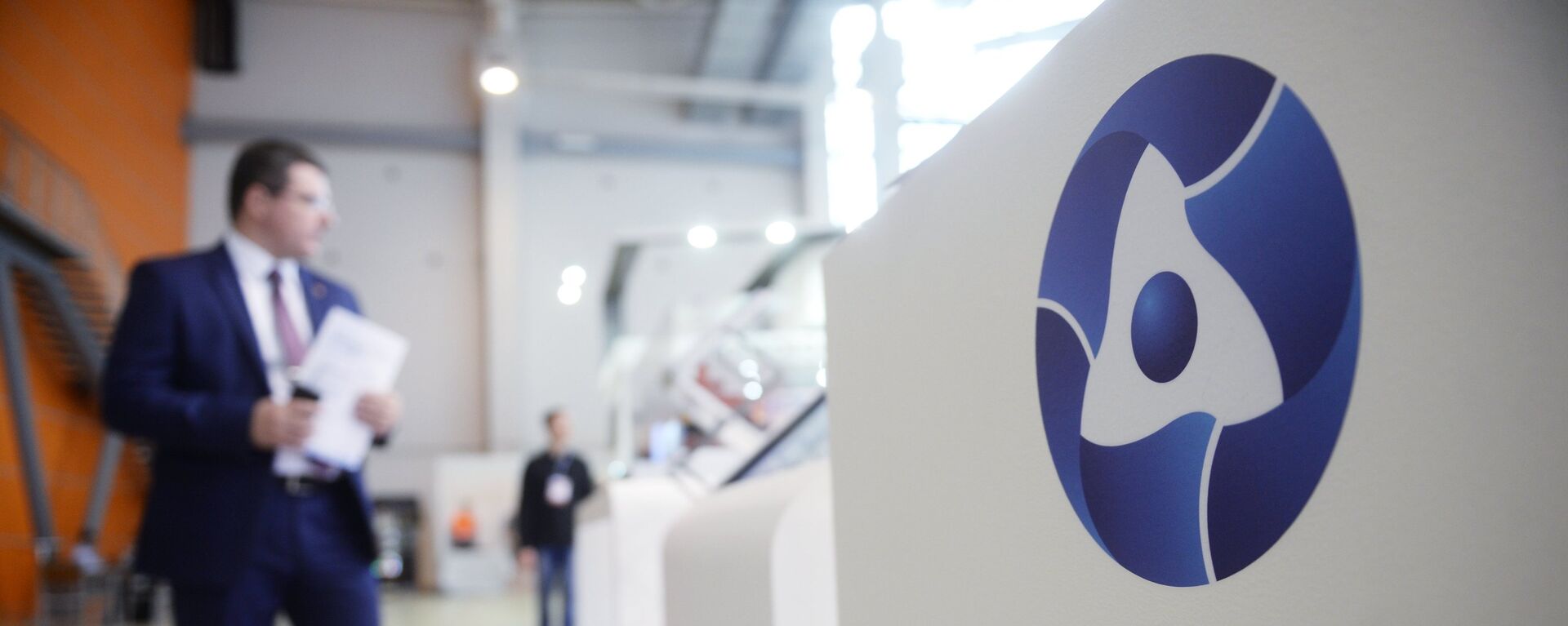
27 December 2021, 11:20 GMT
Western Sanctions Won't Stop El Dabaa NPP Project
According to Egyptian officials, nothing can hinder the historic project, including
the latest round of sweeping sanctions imposed on Russia by the US and its allies over Moscow's special military operation to demilitarize and de-Nazify Ukraine.
"Russia is a great power with extensive experience in the field of nuclear energy," says Mounir Mujaheed, former deputy head of the Egyptian Nuclear Power Plants Authority. "This project has been developed for a long time, it is extremely important both for us and for Rosatom. Therefore, I am convinced that neither the events around the Russian military operation, nor Western sanctions will prevent us from developing cooperation in the field of peaceful atomic energy."
Still, Cairo had concerns that the project could be frozen, admitted Ali Abdel Naby, the former deputy head of the Department of Nuclear Power Plants. However, a solution to tackle possible risks was quickly found, according to him.
“Under the current circumstances, there were certain fears that third parties would prevent us from starting the construction," Naby noted. "But as a result of close negotiations with Rosatom, we were able to work out a roadmap allowing us to begin the works in time. I want to add that Russia is fulfilling all its obligations. Russia's commitment to the timely implementation [of the project] confirms its reliability as a strategic partner."
